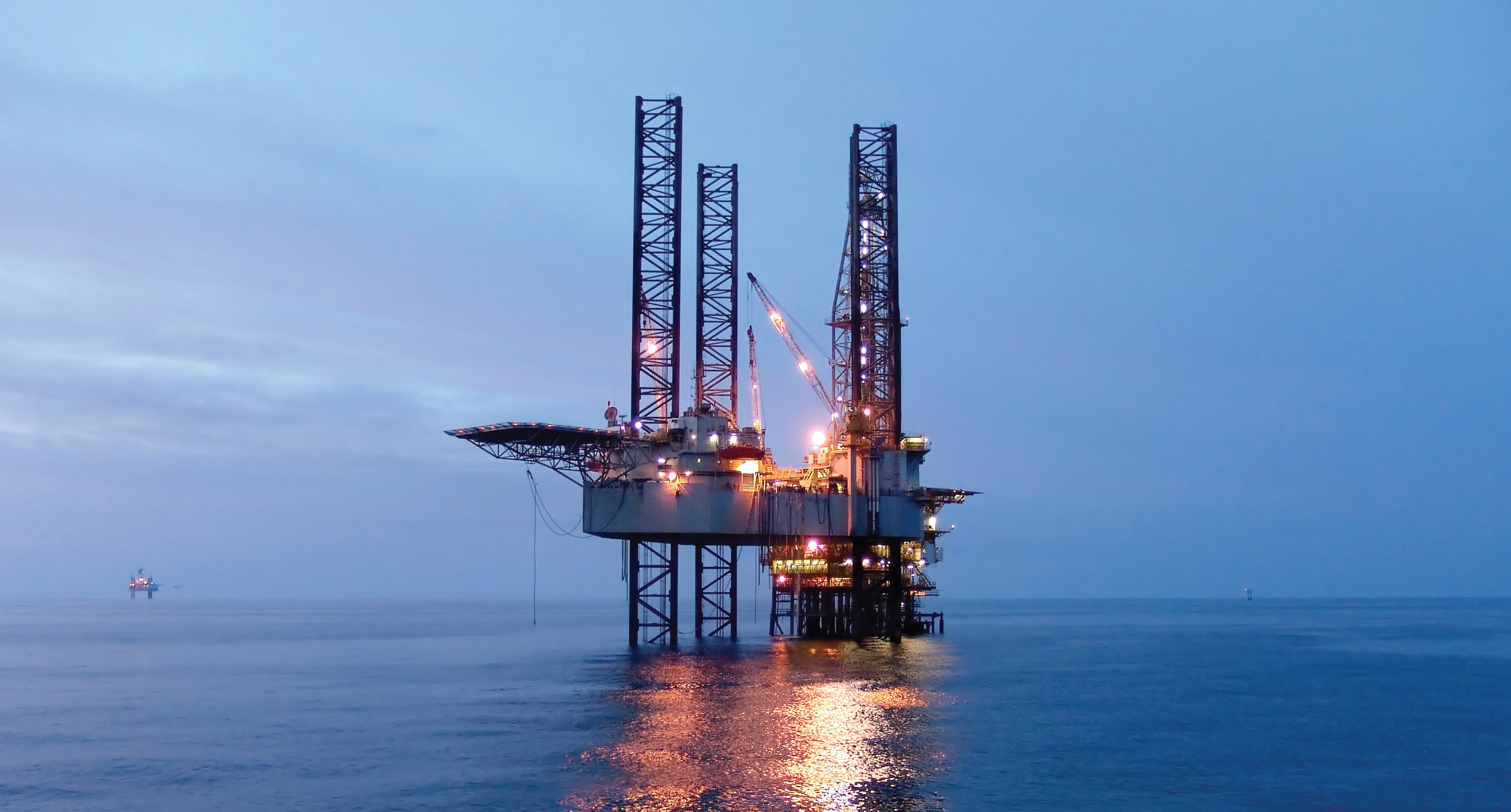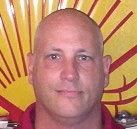20 Minutes With Sean Komatinsky
Rachel Fowler, Managing Editor | TLT 20 Minutes October 2017
This former U.S. Coast Guard officer examines emerging lubrication challenges in the offshore industry.

© Can Stock Photo / look67
SEAN KOMATINSKY - The Quick File
Sean Komatinsky is the senior lubricant technical advisor for Shell Marine Lubricants, specializing in the offshore energy sector. He received his bachelor’s of science degree in management from the U.S. Coast Guard Academy. Prior to joining, he was an officer for the U.S. Coast Guard from 1996-2005, followed by a role as a senior pipeline operations specialist for two years with Praxair. His introduction to the lubricant industry started with his role as a lubricant technical advisor and HSSE specialist for Shell Marine Lubricants, followed by a role as technical services engineer with Castrol Energy from 2011-2017, specializing in offshore lubrication.
Komatinsky holds STLE’s Certified Lubrication Specialist™ (CLS) and Oil Monitoring Analyst I™ (OMA I) certifications. He also wrote the Lubrication chapter for the International Association of Drilling Contractors (IADC) Drilling Manual, 12th edition, published in 2014.
 Sean Komatinsky
Sean Komatinsky
TLT: Where did you start in the industry, and how did you get there?
Komatinsky: I had taken an unconventional path to my current role—prior to entering the lubricant industry most of my experience was as an officer in the U.S. Coast Guard with a focus in general operations and marine inspection. I was fortunate to have a great deal of interface with many different operators in the marine industry and was able to understand their unique needs.
Following my departure from the U.S. Coast Guard, I furthered my understanding of industrial operations and reliability as a senior gas pipeline system specialist for Praxair supplying pipeline industrial gas to refinery and chemical production operations. Through this role I learned about system dynamics and optimization, as well as customer applications and requirements.
My first opportunity in the lubricant industry was primarily to provide HSSE oversight for the network of Shell Marine Lubricant distributors with some lubrication technical support tasks for customers and distributors. I quickly grasped the fundamentals of lubrication and the different resources available to select, troubleshoot and optimize lubricant utilization. While this first lubricant technical role was very rewarding and provided a good foundation as a lubrication specialist, my desire to further elevate my technical service capabilities brought me to focus as a technical service engineer with Castrol Energy Lubricants supporting the energy market. I have now brought my offshore lubrication experience back to Shell Marine Lubricants with a focus on improving the level of service to the offshore community and working with my colleagues around the globe to provide the same high level of service wherever our customers operate.
TLT: When you started, what did you find challenging to learn about related to the industry?
Komatinsky: What I found most challenging was being thrust into an industry with little technical experience in the field of lubrication. It is difficult to gain personal and customer confidence unless you can speak to the relevant issues intelligently. The enormity of the industry, understanding ways of working and the different needs of the different customer also were challenging. In my first role I served all segments of the marine industry including cargo vessels, towboats, drilling rigs, cruise ships and production platforms. Each one of these customer segments had drastic differences in applications, risks, lubrication cultures and needs.
TLT: How did you resolve these challenges?
Komatinsky: With so many challenges in front of me, the only way to move forward was to roll up my sleeves and bite off the challenges in chunks. Three things really stand out regarding my success: (1.) my creative thought process, (2.) a customer-centric focus and (3.) the desire to find ways of adding value and serving my customers. New to the industry, one of my biggest challenges was gaining experience and credibility. This process took several years, and I utilized everyone around including colleagues, customers, training classes, third-party specialists and online resources to gain as much knowledge as I can. Gaining my certifications through STLE also has been a big part in establishing my credibility in the industry.
Participating in utilizing this creative thought process really opened my mind to different ways of working and customized the focus and service to the different needs of each situation. My customers also challenged me to find better ways of working and allowed me the opportunity to serve them. Finding that place where you can add value and meet the special needs of someone is a wonderful place to be. Even after having 10 years of experience as a lubrication professional, I still always learn new things from people who have a wide range of experiences.
TLT: What are your areas of focus?
Komatinsky: My areas of focus are broken down into a few primary components, including (1.) effective selection and utilization of lubricants, (2.) lubrication culture development and (3.) development and integration of a lubrication program into the maintenance strategy. The energy industry has a number of opportunities to bring the right lubricant or support solutions in helping improve reliability, reduce maintenance and reduce total lifecycle costs.
The oil and gas industry in the last six years has faced a significant expansion and contraction, which has presented many challenges and opportunities. Through the rapid expansion of the energy market, there emerged several new OEMs, new equipment designs, expansions into new geographical markets and the introduction of new less-experienced workers. I observed a great deal of inefficiency, which came with this as the lubrication programs and services couldn’t develop fast enough to maintain a good lubrication program and culture.
However, while the energy downturn has been difficult on companies, communities and individuals, I see several good things emerging, including the realization that the industry must become more reliable and that better lubricants, lubricant utilization and lubricant services is a key tool in this process. The industry is looking for all possible solutions to improve reliability, reduce lifecycle costs and predict failures. Each participant in this industry, including operators, OEMs, lubricant manufacturers and lubricant service providers, are working better together toward a common goal of continuous improvement to make our industry stronger. OEMs, whom I could never get in contact with at the peak of the energy industry, are now sitting down to review opportunities in lubrication and improve their knowledge. I frequently utilize facility lubrication audits, training and lubrication program development to help people more effectively utilize lubrication as a key tool in their maintenance strategy.
TLT: For people entering the industry today, do you feel these challenges still exist?
Komatinsky: While there are always challenges, there also are several opportunities for entry into our industry and achieving success. There are a number of areas regarding lubrication where people can participate and add value to the industry. A great deal of this lies with the attitudes of the individual and their willingness to learn. For me, I found that the fundamentals of lubrication and lubrication culture have been the cornerstone of my approach to lubrication. My recommendation for new participants is to find a focus and let that be your foundation. Use every interaction with an operator, OEM, service company or another lubrication professional as an opportunity to learn. Challenge the standards and try to find ways to improve.
TLT: Is there improved information and resources available to help with these challenges?
Komatinsky: There are a great number of resources available, and the most important are the lubrication professionals in our industry. The level of experience of those I have worked with is extraordinary, and they absolutely love sharing their experiences. These people also demonstrate that despite their experience, they learn new things every day, even from people relatively new to the industry. Additionally, there is everything from online training, STLE courses and certification programs and articles on just about every facet of lubrication that people would like to learn about.
You can reach Sean Komatinsky at Sean.Komatinsky@shell.com.